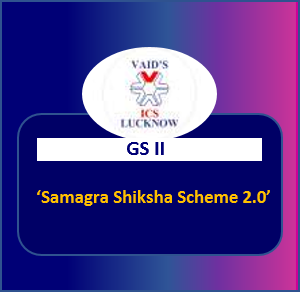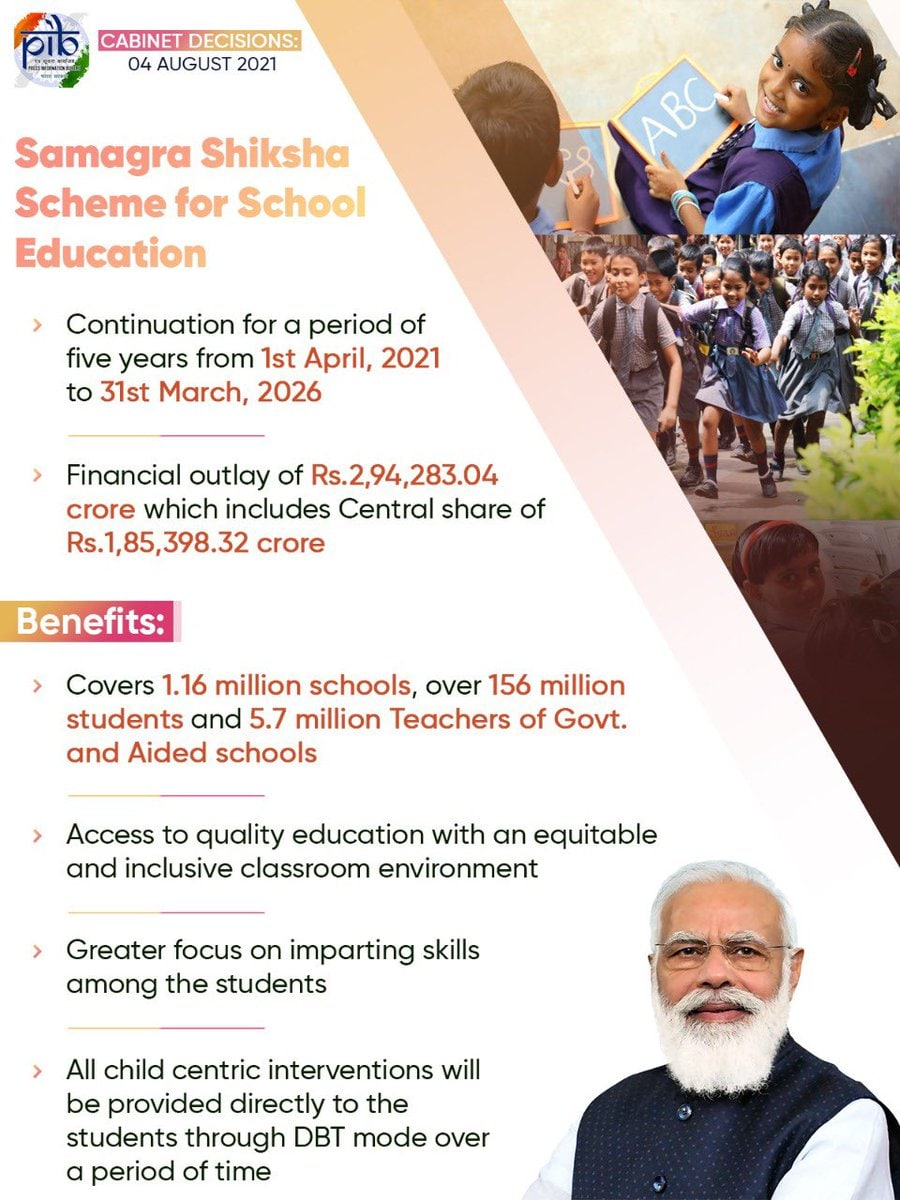CURRENT AFFAIRS
Get the most updated and recent current affair content on Padhaikaro.com
‘Samagra Shiksha Scheme 2.0’
- Vaid's ICS, Lucknow
- 07, Aug 2021

Why in News?
On 4th August 2021, the Cabinet Committee on Economic Affairs has given its approval for continuation of the revised Samagra Shiksha Scheme for a period of five years i.e., from 2021-22 to 2025-26.
Benefits:
The scheme covers 1.16 million schools, over 156 million students and 5.7 million Teachers of Govt. and Aided schools (from pre-primary to senior secondary level).
Details:
- The Samagra Shiksha scheme is an integrated scheme for school education covering the entire gamut from pre-school to class XII.
- The scheme treats school education as a continuum and is in accordance with Sustainable Development Goal for Education (SDG-4).
- The scheme not only provides support for the implementation of the RTE Act but has also been aligned with the recommendations of NEP 2020 to ensure that all children have access to quality education with an equitable and inclusive classroom environment .
About Samagra Shiksha Scheme:
- It is an integrated scheme for school education covering the entire gamut from pre-school to class XII.
- It aims to deliver inclusive, equitable, and affordable school education.
- It subsumes the three Schemes of Sarva Shiksha Abhiyan (SSA), Rashtriya Madhyamik Shiksha Abhiyan (RMSA) and Teacher Education (TE).
- The scheme covers 1.16 million schools, over 156 million students and 5.7 million Teachers of Govt. and Aided schools (from pre-primary to senior secondary level).
- It is being implemented as a centrally sponsored scheme. It involves a 60:40 split in funding between the Centre and most States. It was launched by the Ministry of Education in 2018.
About Samagra Shiksha Scheme 2.0:

Direct Benefit Transfer (DBT):
- In order to enhance the direct outreach of the scheme, all child-centric interventions will be provided directly to the students through DBT mode on an IT-based platform over a period of time.
- This DBT would include RTE (Right to Education) entitlements such as textbooks, uniforms and transport allowance.
On NEP Recommendations:
Encouraging Indian languages:
It has a new component for appointment of language teachers, which includes salaries, and training costs as well as bilingual books and teaching learning material as recommended in NEP.
Pre-primary Education:
- It will now include funding to support pre-primary sections at government schools, i.e. for teaching and learning materials, indigenous toys and games and play-based activities.
- Master trainers for pre-primary teachers and anganwadi workers will be supported under the scheme.
NIPUN Bharat Initiative:
Under this initiative, an annual provision of Rs. 500 per child for learning materials, Rs. 150 per teacher for manuals and resources and Rs. 10-20 lakh per district will be given for assessment for foundational literacy and numeracy.